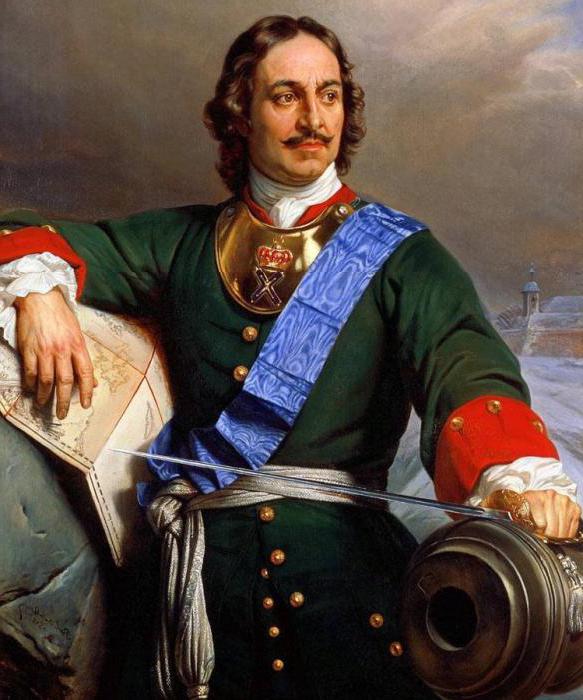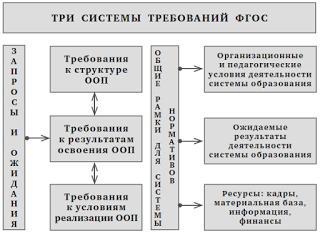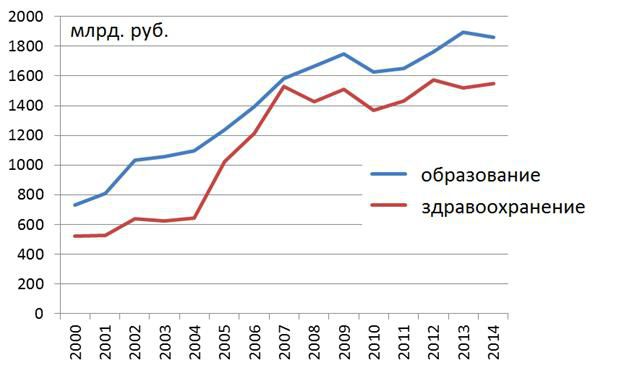Education today is one of the main and important areas of human life and society. This is an independent branch of the social and economic sphere. The education system in our country has repeatedly undergone changes.
Education concept
As a rule, education relates mainly to the pedagogical sphere, and within the framework of this area of science its concept is as follows: it is a process aimed at upbringing and training in the interests of a member of society, during which he masters the body of knowledge. Thus, the education process can be characterized on several grounds: purposefulness, organization, manageability, completeness and compliance with the quality requirements established by the state.
The origin of education in Russia
Education and literacy have always been prevalent in Russia, as evidenced by found birch bark letters dating back to the 1st millennium.
The beginning of universal education in Russia was laid by Prince Vladimir when he issued a decree to take children from the best families and teach them "book teaching", which was perceived by the ancient Russians as wildness and aroused fear. Parents absolutely did not want to give their children to study, so students were enrolled in schools by force.
The first large school appeared in 1028 through the efforts of Yaroslav the Wise, who was able to collect 300 children and issued a command to “teach them books.” Since then, the number of schools has begun to increase. They were opened mainly at monasteries and churches, and not only in cities, but also in rural settlements.
It is worth noting that the princes of Ancient Russia were educated people, so they paid special attention to teaching children and books.
Education and its level grew right up to the Mongol-Tatar invasion in the 13th century, which was disastrous for Russian culture, since almost all centers of literacy and books were destroyed.
And only in the middle of the XVI century the rulers thought about literacy and education again, and already in the XVIII century, education began to occupy a special place in the history of Russia. It was then that an attempt was made to create a state education system. Schools were opened and experts in various sciences from abroad were invited or Russian teenagers were sent abroad to study.
Only under Peter I did education and enlightenment, as well as their development, the opening of schools of various specializations (mathematical, geographical), become an important state task. Thanks to this, a vocational education system has emerged in Russia.
With the death of Peter I, Russian education fell into decay, as its successors did not pay due attention to science.
But if earlier only children of noblemen and other noble families and families were allowed to study, then from the second half of the 18th century everything changed radically. Catherine II laid in the concept of "education" a completely different meaning - the education of the people.
The Ministry of Education was first created in 1802 by decree of Tsar Alexander I; the types of educational institutions were established: parish and county schools, gymnasiums and universities. Continuity was established between these institutions, the number of grade levels increased to 7, and it was possible to enter the university only after graduating from the gymnasium.
At the end of the 19th and beginning of the 20th centuries, questions were raised about the reform of school education, which very soon became the focus of public attention. In this period, the Russian school, despite various difficulties and contradictions, experienced a boom: the number of educational institutions increased, the number of students in them, a variety of forms and types of education, as well as its content.
The history of the development of education in the XX century
The destruction of the education system that existed at that time began after the 1917 revolution. The school management structure was destroyed, private and spiritual educational institutions were closed, and the screening of "unreliable" sciences and teachers began.
The idea of the Soviet school was a unified system of free and joint general education. The advantages of enrollment in classes were given to peasants and workers, a system of socialist education developed, and schools were separated from churches.
The laws adopted in the 40s on education in Russia have actually survived to this day: teaching children at school from the age of 7, introducing a five-point grading system, final exams after graduation and awarding honors with medals (silver and gold).
Reform of Russian education
In the modern history of the Russian Federation, education reform began in 2010 with the signing of a bill on a package of measures to modernize the education system. The official start was given in January 1, 2011.
The main measures taken to reform education include:
- The introduction of a unified state exam (EEG) instead of the "unjust", according to lawmakers, examination system that has been in operation in Russia for many decades.
- The introduction and further development of higher education at several levels - undergraduate and graduate programs aimed at bringing Russian education closer to European. Some universities retained five years of study in some specialties, but today there are very few of them.
- Gradual reduction in the number of teachers and educators.
- Reducing the number of higher education institutions through their complete closure or reorganization, as a result of which they join more powerful universities. This assessment was given to them by a special commission created by the Ministry of Education.
The results of the reform will not be summed up soon, but opinions have already been divided. Some say that as a result of these changes, one of the most qualitative and fundamental educational systems in the world has collapsed. As state subsidies became much smaller, it all came down to the commercialization of education at all levels of educational institutions. Others say that thanks to European standardization, Russian students got a chance to work abroad, and the number of juggling exam results in schools decreased.
Structure
The education system in Russia consists of several components:
- State requirements and educational standards developed at the federal level.
- Education programs consisting of different types, directions and levels.
- Educational institutions, as well as the teaching staff, the students themselves and their legal representatives.
- Education management bodies (at the federal, regional and municipal levels) and the bodies of consultative or consultative nature created with them.
- Organizations designed to provide educational activities and assess its quality.
- Various associations working in the educational field (legal entities, employers, public organizations).
Legislation and legal regulation of education
The right to education for citizens of our country is guaranteed by the Constitution of the Russian Federation (Article 43), and all issues related to this are the responsibility of the state and its subjects.
The main document regulating the education system is Federal Law dated December 29, 2012 No. 273-ФЗ “On Education in the Russian Federation”.
According to the document, decrees, orders, decrees and other documents in the educational sphere can be adopted not only at the federal, but also at the regional and municipal levels, as additions to the basic national laws.
Standards and government education requirements
All training standards are adopted at the federal level and are designed to provide:
- A single educational process throughout the Russian Federation.
- Continuity of the main programs.
- A variety of program content at an appropriate level, the formation of programs of various orientations and complexity, taking into account the needs and abilities of students.
- The guaranteed level and quality system of education within the framework of the uniform mandatory requirements of educational programs - according to the conditions and results of their study.
In addition, they are the basis on which the quality of education students, as well as the terms of study of a particular type of education.
Compliance with standards and requirements is a prerequisite for the implementation of basic education programs in preschool and other organizations conducting educational activities.
State standards include, inter alia, the requirements for the main educational programs:
- To their structure.
- To the conditions of implementation, including financial, personnel and logistical issues.
- To the final results of their development.

For students with disabilities, special requirements and standards are available, which are also available at the level of professional education.
Education Management in Russia
The education system is managed within several levels: federal, regional and municipal.
At the federal management level It is carried out by the Ministry of Education and Science of the Russian Federation, whose functions include the development of public policy and legal regulation in the educational sphere. Documents are accepted at the level of the President and the Government of the Russian Federation.
The Federal Service for Supervision of Education and Science (Rosobrnadzor) is engaged in licensing, certification of educational institutions, certification of scientists and teachers of universities, certification of graduates, confirmation of education documents.
Education management at the regional level is administered by ministries and education departments formed in the constituent entities of the Russian Federation. Supervises the implementation of federal and regional legislation in the field of education Rosobrnadzor.
At the municipal level, the management of education, as well as the execution of federal, regional and municipal laws and requirements, is carried out by departments, administrations and departments of education located on the territory of municipalities.
Types of education systems and forms of training
The modern education system in Russia is divided into several types.
- The system of preschool education (nursery, kindergarten).
- Primary (kindergarten, school).
- Basic (schools, grammar schools, lyceums, cadet corps).
- Secondary (schools, grammar schools, lyceums, cadet corps).
Professional:
- The system of secondary specialized education (vocational schools, colleges, technical schools);
- Higher education system - bachelor's degree, specialty, master's program and training of highly qualified personnel (universities, academies).
Additional means:
- Specialized training for adults and children (palaces of children's creativity, art school for adults and children).
- Professional education (continuing education institutions). It is carried out, as a rule, by scientific organizations and institutions.

Education is divided into 3 main forms of education: full-time, or full-time; part-time (evening) and extramural.
In addition, education can be obtained in the form of external studies, that is, self-education and self-education, and family education. These forms also give students the right to undergo final grades in educational institutions.
New forms of training that emerged as a result of reforms include: the network system education (education with the help of several educational institutions at once), electronic and distance learning, which is possible using remote access to educational materials and passing the final attestations.
Education and its educational and methodological support
The information base is the main tool for organizing the educational process. It reflects not only the ways of building the educational process, but gives a complete idea of the volume of the content of training, which is subject to assimilation.
The main goal pursued is the implementation of the requirements of state educational standards to provide all students with a complete set of educational and methodological materials for all forms of education.
Questions of educational and methodological support of the education process are supervised by the Ministry of Education and Science of the Russian Federation. It also approves the federal list of textbooks and their contents. According to the order of the department, all school textbooks must also have an electronic version with the content of multimedia and interactive elements.
Well-established educational and methodological support allows you to systematize methodological, regulatory materials; analyze and improve the effectiveness and quality of training sessions; to build an objective system of assessing the knowledge of students and graduates.
Education expenses
In recent years, the general education system in Russia, its updating and improvement has been one of the state's highest priorities, despite economic difficulties. In this regard, subsidized funds allocated by the Government are growing from year to year.
So, for example, if in 2000 more than 36 billion rubles were allocated for the development of education, then already in 2010 - 386 billion rubles. budget injections. At the end of 2015, the budget for education expenses was executed in the amount of 615,493 million rubles.

Education system development
The concept was set forth by the Government of the Russian Federation in Decree No. 497 of 05.23.15 “On the Federal Targeted Program for the Development of Education for 2016-2020”.
The program is aimed at creating a number of conditions for the effective development of education in Russia, aimed at providing affordable quality education that will meet the modern requirements of a socially oriented society as a whole.
The tasks to achieve this goal are:
- Formation and integration of structural and technological innovations in secondary vocational and higher education.
- Development and implementation of a set of measures to develop an effective and attractive system of additional education for children, scientific and creative environment in educational institutions.
- The formation of such an infrastructure that would provide conditions for the training of highly qualified personnel in the modern market.
- The formation of a popular system for assessing the quality of education itself and its educational results.
The implementation of the program is divided into 2 stages:
- 2016-2017 - testing and implementation of measures begun since the start of the Federal Education Reform.
- 2018-2020 - changing educational structures, disseminating new educational programs, introducing new technologies and much more.
Consequences of the reform and problems of the development of education in Russia
Russian education, which was underfunded in the 90s and has undergone fundamental changes since 2010, according to many experts, has begun to lose much in quality.Here one can single out a number of problems, because of which education not only does not develop, but rolls down.
First, the social status of teachers and teachers has declined. This applies not only to the degree of respect for such work, but also to the level of payment and social state guarantees.
Secondly, a powerful bureaucratic system that does not allow young and talented scientists to obtain scientific degrees and ranks.
Thirdly, the elimination of educational criteria and standards that have been built for decades, and therefore become transparent and accessible to all who are interested.
Fourth, the introduction of the EEG as an exam, which boils down to assessing the student’s memory in various subjects, but which does not contribute to the development of logic or creative thinking.
Fifth, the introduction of new types of training systems: undergraduate (4 years) and graduate (6 years). Avoiding the specialty training programs (5 years) has led to the fact that now 5-year programs are cut to a minimum, and master's programs are replete with additional and often completely unnecessary subjects for training a future undergraduate.






